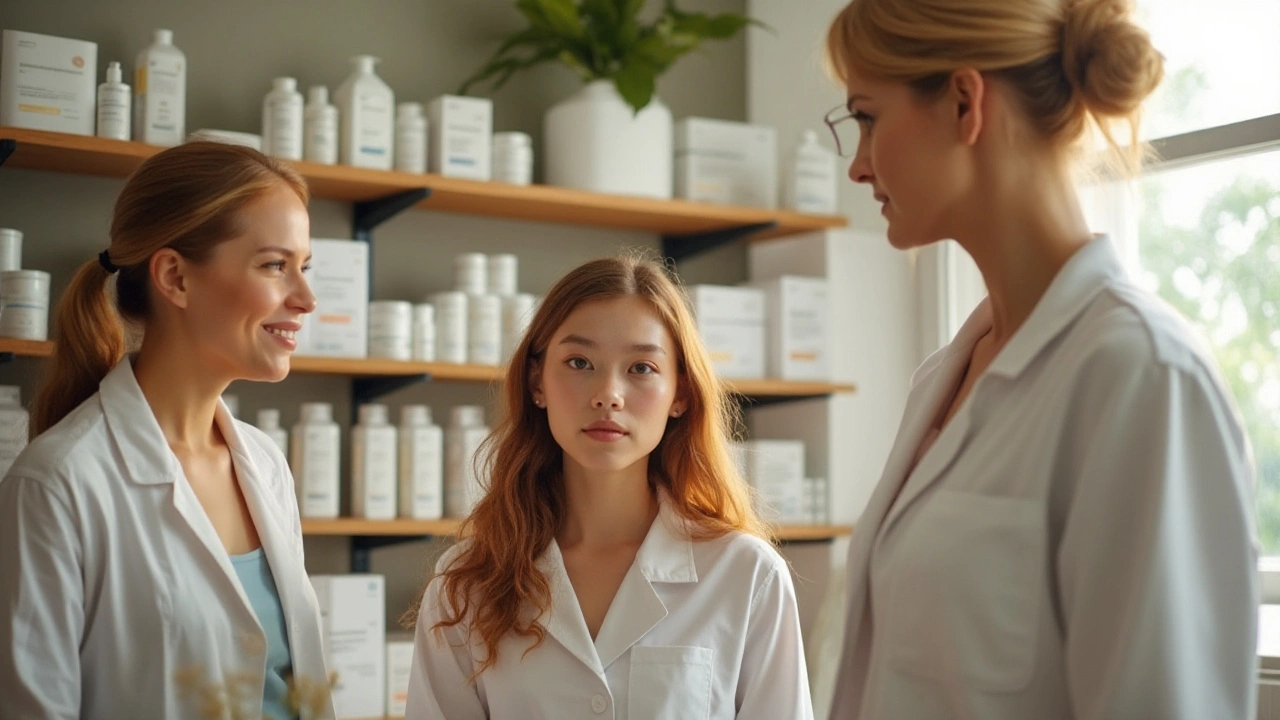Skincare Alternatives: Safer Options Beyond the Usual
Tired of treatments that promise a lot and deliver irritation? You don’t always need stronger drugs to get results. Some options work well with fewer side effects, and picking the right one depends on your skin type and the problem you want to solve.
Top topical alternatives
For eczema and inflammation, non-steroid drugs like pimecrolimus (Elidel) can help without the skin-thinning risk of steroids. Elidel targets immune signals in the skin and often suits sensitive areas where long-term steroid use is risky. For acne, look at topical retinoids (start with low strength), benzoyl peroxide for bacteria, and salicylic acid for clogged pores. Azelaic acid kills acne bacteria and calms redness, and niacinamide can reduce oil and strengthen the skin barrier.
If you need hydration and repair, don’t skip moisturizers with ceramides and hyaluronic acid. These rebuild the skin barrier, cut redness, and make active treatments less irritating. Sunscreen is non-negotiable: many treatments make skin more sun-sensitive.
Procedural and natural options
Chemical peels can clear acne and improve skin texture, but strengths vary. Superficial peels (like low-strength glycolic or salicylic) are gentler and work for ongoing acne or mild scarring. Deeper peels give stronger results but need a pro and downtime. Microneedling helps with scarring and product absorption, but always go to a trained provider to avoid infection or uneven results.
Natural doesn't mean risk-free. Oat extracts, green tea, and centella asiatica can soothe inflammation for sensitive skin. Tea tree oil fights acne bacteria but can irritate if used full strength. Do a patch test and use diluted products.
Supplements like omega-3s or zinc may support skin health for some people, but they’re not instant fixes. Tell your doctor about supplements, especially if you take other medications.
How to choose? Start by naming the problem: dryness, acne, redness, or scarring. Pick one targeted approach—don’t mix everything at once. Patch test new products, introduce one product every 2–3 weeks, and track how your skin reacts. If a product irritates or worsens your skin, stop and consult a clinician.
When to see a pro: persistent acne, sudden rashes, worsening eczema, or if you need stronger prescription care. A dermatologist can suggest the best safe alternative—sometimes that’s Elidel, sometimes a low-strength peel, or a combo plan with barrier repair plus a topical medicine.
One last tip: cut down on harsh scrubs and over-cleansing. They strip the barrier and make everything else harder to tolerate. Stick to gentle cleansing, targeted actives, and sun protection. Your skin will thank you with fewer flare-ups and better long-term results.

Top 10 Best Alternatives to Isofair for Clear Skin
Explore a comprehensive guide on the top 10 alternatives to Isofair for treating acne and enhancing skin health. This article delves into a range of treatments, from topical solutions like retinoids and salicylic acid to natural options like tea tree oil. Each alternative is discussed in detail with its benefits and potential drawbacks, assisting readers in making informed decisions about their skincare routines. Suitable for individuals seeking effective and varied approaches to acne management.
Read more